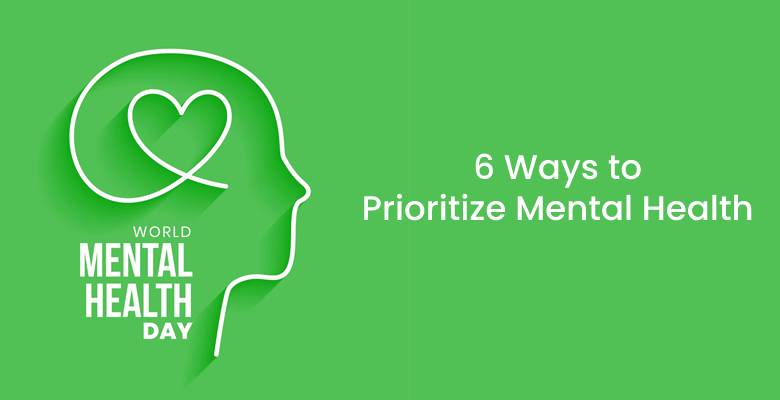
On a Tuesday morning at Ernst & Young (EY), a tragic event shook the corporate world. A 26-year-old woman, overwhelmed by work stress, was found dead in her office. She had everything going for her—success, a great career, and a bright future. Yet, behind her achievements, there were silent struggles. This heartbreaking incident was one of the many incidents that have happened over the years and highlights the growing mental health crisis in the workplace. In the hustle of our everyday lives, we often forget to take care of ourselves.
Today, most organizations are making sure that their employees do not struggle and try their best to help them maintain work-life balance. On 10th October 2024, let us celebrate World Mental Health Day, which has its theme “It is Time to Prioritize Mental Health in the Workplace”. Let’s explore how we can prioritize mental health at work.
Set Clear Boundaries

With the rise of remote work, the line between work and personal life can blur. It’s crucial to set firm boundaries to protect your mental well-being. Establish a start and end time for your workday and stick to it. Avoid checking work emails after hours, and communicate with your team about your availability. By creating a separation between your work and personal life, you can reduce stress and prevent burnout, allowing yourself to unwind and recharge.
Practice Mindfulness

Mindfulness is a powerful tool to stay present and manage stress in the workplace. By practicing mindfulness, such as meditation or deep-breathing exercises, you can refocus your mind and calm your body, even during hectic workdays. Taking just five minutes to practice deep breathing or a short-guided meditation can help lower anxiety, improve concentration, and boost your emotional resilience. You can use platforms like Mindvalley or so for guidance. Regular mindfulness practice can also help you maintain a positive outlook, making challenges feel more manageable.
Prioritize Physical Health

Physical and mental health are deeply interconnected, and staying active throughout the day can significantly benefit your mental well-being. Long hours of sitting can lead to fatigue and stress, so it’s essential to incorporate movement into your routine. Taking short walks, stretching, or doing desk exercises can help you stay energized. This World Mental Health Day let’s spread the importance of regular physical activity which not only improves mood but also enhances cognitive function, allowing you to think more clearly and manage stress more effectively.
Take Regular Breaks

Many employees push themselves to work non-stop, thinking it will help them get more done. However, working without breaks can lead to mental exhaustion and decreased productivity. Taking short, frequent breaks throughout the day allows your brain to rest and recharge, improving focus and creativity when you return to work. Step away from your desk, get fresh air, or stretch your legs. Even a few minutes away from your screen can make a big difference in reducing stress.
Foster Social Connections

Building supportive relationships at work can have a positive impact on your mental health. Whether it’s having a quick chat with a colleague, participating in team-building activities, or joining virtual coffee breaks, social connections can provide emotional support during stressful times. When you share your experiences and challenges with trusted coworkers, you can alleviate feelings of isolation. Creating a supportive work environment where employees feel connected can help reduce work-related stress.
Seek Support When Needed

It’s important to recognize when you’re feeling overwhelmed and to seek help before things escalate. Many workplaces now offer mental health resources such as Employee Assistance Programs (EAPs), counseling services, or access to therapy. Don’t hesitate to reach out to these resources if you’re struggling. Alternatively, talking to your manager or HR about workload concerns or requesting mental health days can also make a difference. Acknowledging the need for support is a sign of strength, not weakness, and can help you regain control of your well-being.
Our Final Words
So, let us pledge on this World Mental Health Day to take care of ourselves by implementing these self-care strategies, so employees can better manage workplace stress and improve their mental health. Creating a healthy work-life balance, practicing mindfulness, staying active, taking breaks, fostering relationships, and seeking help when necessary are key steps to maintaining well-being in any work environment.
